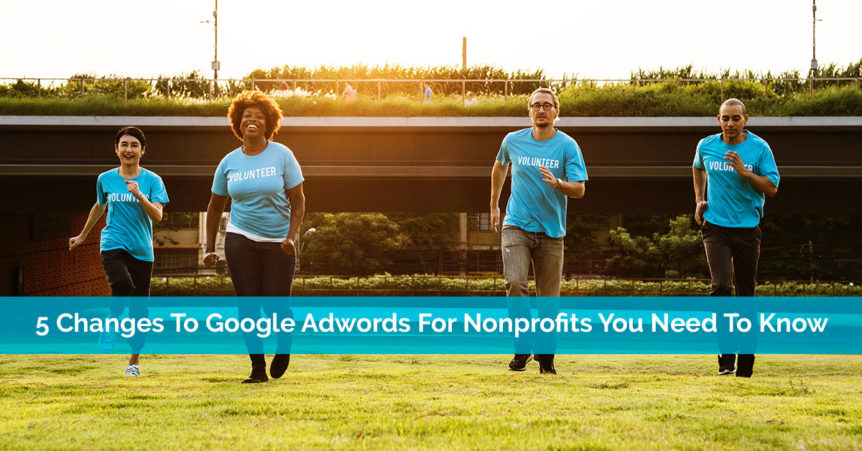The Google AdWords for nonprofits program has benefited churches and nonprofits for years now, but that doesn’t mean Google won’t make changes at any time.
In fact, Google has made several major changes to the program. Some actually make it much easier to use your grants, while others make it a little harder.
The good news is it doesn’t take long to adjust to these changes and still make the most from your monthly grant funds.
Looking to get started on your Google Grant? REACHRIGHT can help!
1. Meet 5% CTR Monthly
Google AdWords for nonprofits now requires all accounts to meet a minimum 5% click-through rate every month. This is higher than it once was, which may make it harder to keep your account active. If your church fails to meet this requirement for two consecutive months, you account will be suspended. You are able to apply again to have your account reinstated.
If you just started with your ad grant, you have 90 days before you have to start meeting this requirement. If your account does get suspended, take a month to create new strategies before trying again. This will make it much easier to manage your account and meet the minimum CTR in the future.
2. $2 Bid Cap Lifted
This Google AdWords for nonprofits change is kind of tricky. In the past, your church had a $2 bid cap, which does make it harder to bid on higher valued keywords. In turn, this also limits how easy it is to reach the 5% CTR.
However, Google has changed this limitation slightly. If you use conversion-based bidding strategies, including Target ROAS, Target CPA or Maximize Conversions, bid amounts may be set higher to achieve your goals. You must have ad tracking enabled and your target page must not be a FAQs page.
3. Account Structuring
Google has also made several changes in how Google AdWords for nonprofits accounts are structured in order to help you meet the 5% CTR. Actually, the changes are things that would already help your church succeed with Google ads.
First, you must use geo-targeting. This ensures your ads are only seen by people relevant to your location or mission. If you don’t use geo-targeting, you will see a lower CTR and your quality score (which affects bid amounts) may go down too. You can target different areas, but ensure you separate areas by campaign. This makes your ads more effective.
Next, you have to have at least two sitelink extensions. For instance, you can’t just have every ad linked to your church’s homepage or blog. Instead, you need at least two different links to your site that would be highly relevant to anyone who clicks your ad. You can separate these by campaign, ad group or individual ads.
Finally, you have to set up at least two ad groups. Each group must have at least two active text ads per group with related keywords. For instance, you might have an ad group about volunteering and another about helping with a recent natural disaster.
4. Ads Must Be Relevant To Your Mission
Your church isn’t allowed to create ads for whatever you want. While that may be nice, Google AdWords for nonprofits does have rules and restrictions in place to limit what types of keywords and ads you create.
The most important rule change is your ads and keywords must be directly relevant to your church’s mission. As such, ads must be much more specific to be seen as more useful to users.
Some rules that go along with this include:
- No single-word keywords (unless it’s a branded keyword for your church)
- Avoid excluded words
- No extremely generic keywords, such as church blog or free e-book
- No keywords having a Quality Score of 1 or 2
5. Keeping Your Website Compliant
Google also made a few changes to how your church’s website is designed. In order to stay compliant with the Google AdWords for nonprofits program, your site must meet the following requirements:
- Ads must only link to the domain used during your application, though you can request additional domains
- Your website’s content must agree with the content within your ads
- Your site must be functional with quality content
- You site can’t be for commercial purposes or include many ads (no ads is ideal and Google Adsense or affiliate ads are forbidden)
- Any commercial activity on your site must be specifically for your charity and nothing else
If all of this sounds too confusing, don’t worry, we’re here to help. We’ll not only ensure your website meets all these requirements, but help you manage your Google AdWords account.




